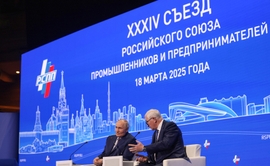Kazakhstan is preparing for a national referendum to determine whether it should proceed with the construction of its first-ever nuclear power plant (NPP).
This decision was announced on Tuesday following a unanimous resolution by government officials during a session chaired by Prime Minister Olzhas Bektenov. The referendum is a response to increasing public demand for a greater role in shaping the nation’s energy future.
“Holding a referendum will help to make a balanced decision on the development of nuclear energy and ensuring energy security of the country,” Kazakh Energy Minister Almassadam Satkaliyev said. “Without a stable, environmentally friendly and cost-effective power supply, we risk being left on the margins of history.”
Prime Minister Bektenov highlighted the current energy deficit in the country. Satkaliyev added that addressing this deficit is crucial to support future economic growth, as failure to act could necessitate the purchase of substantial amounts of electricity.
The debate over nuclear energy in Kazakhstan has intensified. Proponents, including many experts and a segment of the population, support the initiative. However, environmental activists and some public figures have expressed concerns about potential environmental risks.
The proposed nuclear power plant would be situated near Lake Balkhash in the Almaty region. The lake’s water is planned for use in cooling the reactors. However, concerns about declining water levels have led some experts to recommend smaller reactors that would require less water, should Lake Balkhash’s levels diminish.
Kazakhstan is evaluating technology options from four international suppliers: France, China, Russia, and South Korea. The choice of technology will be pivotal in determining the project’s cost and safety.
Building the nuclear power plant is projected to cost around $5 billion for a single unit. The Ministry of Energy has indicated that the project will likely involve a consortium of international investors. Besides construction costs, Kazakhstan will need to plan for the long-term storage of radioactive waste and the future decommissioning of the plant.
Discussions about the nuclear power plant have been ongoing for years. President Kassym-Jomart Tokayev has been a strong supporter of the project, urging the government in 2021 to prioritize nuclear energy development to avoid potential power shortages by 2030.
Kazakhstan, the world’s largest uranium producer, holds approximately 12 percent of the globe’s recoverable uranium resources. Although the country has not used its uranium for electricity generation for decades, it previously operated a facility from 1973 to 1999 for power generation and desalination. This facility was closed following Kazakhstan’s commitment to the global non-proliferation regime. Given its significant uranium resources and commitment to cleaner energy, Kazakhstan is well-positioned to advance its nuclear energy ambitions.







 Azerbaijanis around the world are commemorating March 31 as the Day of Genocide of Azerbaijanis, which took place 107 years ago and is considered o...
Azerbaijanis around the world are commemorating March 31 as the Day of Genocide of Azerbaijanis, which took place 107 years ago and is considered o...
 Azerbaijan’s historical biographical film “Taghiyev” has won the Best Feature Film award at the Dehancer Colorist Awards 2024. The film, which chro...
Azerbaijan’s historical biographical film “Taghiyev” has won the Best Feature Film award at the Dehancer Colorist Awards 2024. The film, which chro...
 Nine years have passed since a bloody escalation of the Armenia-Azerbaijan conflict that was later dubbed the April War or Four Day War.
Nine years have passed since a bloody escalation of the Armenia-Azerbaijan conflict that was later dubbed the April War or Four Day War.
 Iranian Foreign Minister Abbas Araghchi has urged the International Atomic Energy Agency (IAEA) to take a "transparent position" regarding potentia...
Iranian Foreign Minister Abbas Araghchi has urged the International Atomic Energy Agency (IAEA) to take a "transparent position" regarding potentia...



